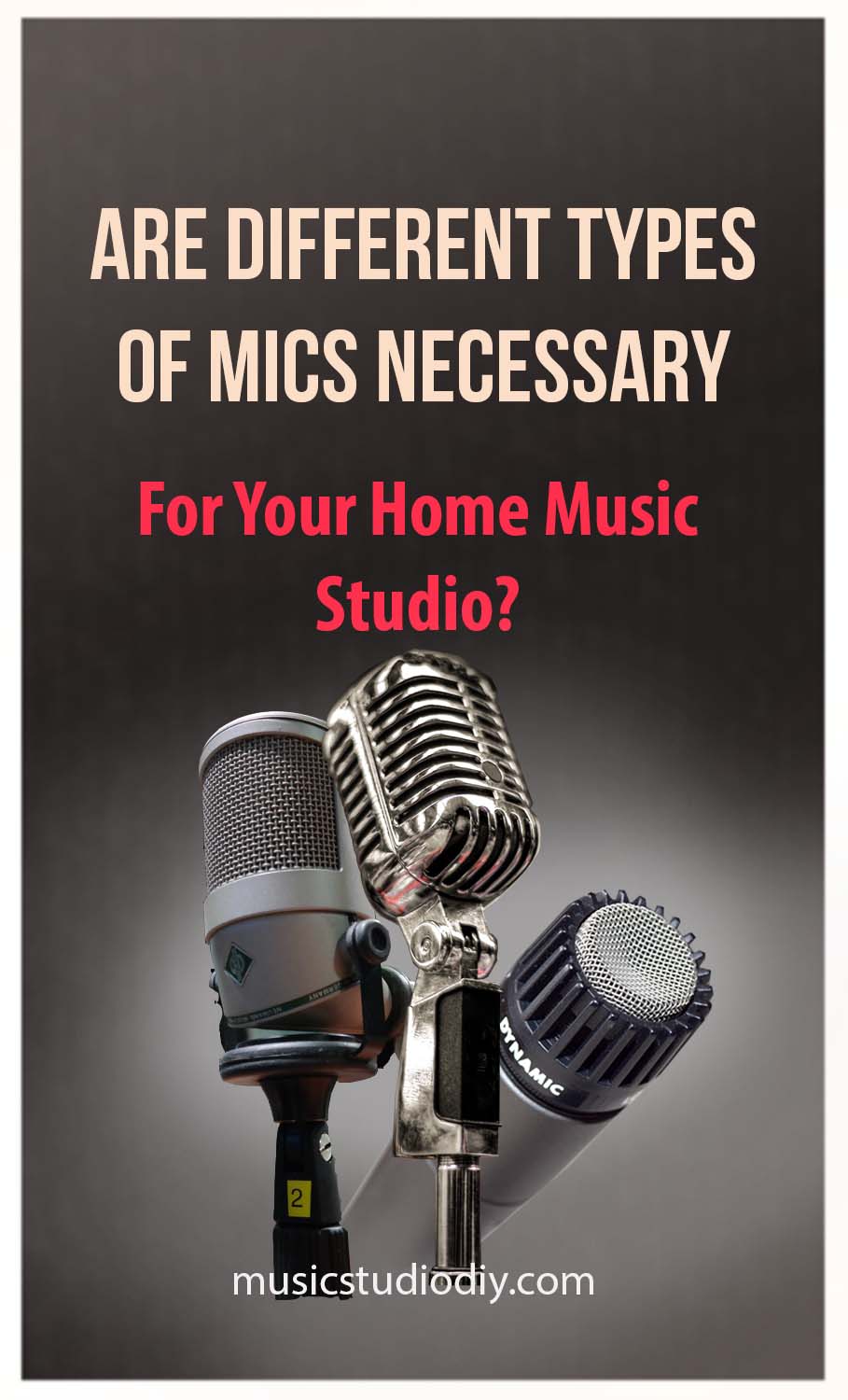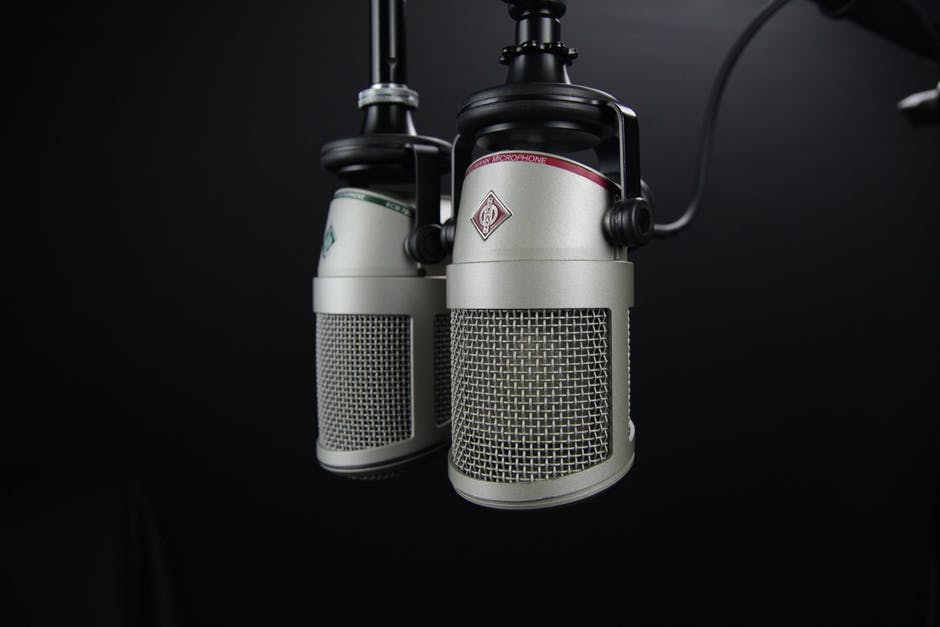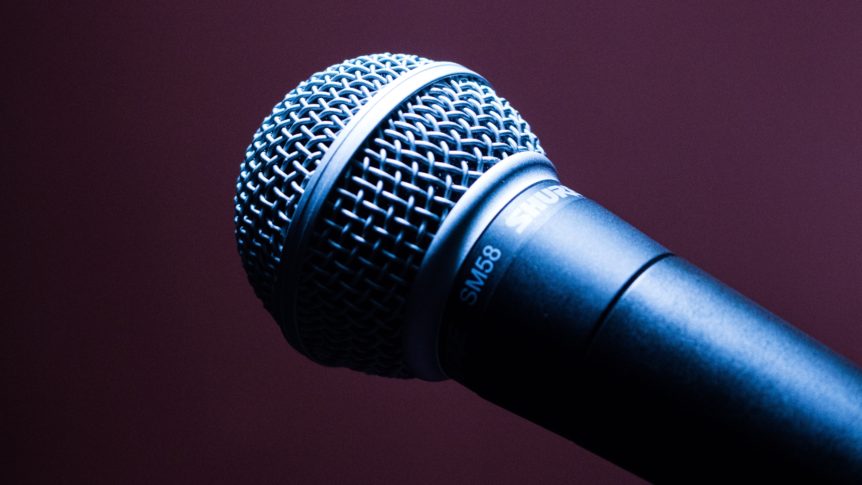 Different types of microphones seem to come in so many varying shapes, sizes and apparent functions… How on earth to possibly choose from it all, right? Don’t they all do the same thing? But there are, in fact, different characteristics and purposes… The question is, do you really need every type in your studio?
Different types of microphones seem to come in so many varying shapes, sizes and apparent functions… How on earth to possibly choose from it all, right? Don’t they all do the same thing? But there are, in fact, different characteristics and purposes… The question is, do you really need every type in your studio?
Your selection process could really be a costly one if you don’t know what you’re looking for. A great deal has to do with what instruments and/or vocals you intend to record in your home music studio. But don’t fret; here’s how to solve your little conundrum and be as economical as possible.
You can skip to our list of Recommended Microphones if you’d like, but for now we’ll discuss what you need to know about selecting microphones for you.
1. Why Would I Need Different Types of Microphones?
So yes, Microphones, in general, could all serve the purpose of recording music in your studio. However, given the different frequencies and resonances produced by different instruments or vocals, varied microphones would be necessary.
A music producer has to consider that different microphones have different levels of sensitivity when it comes to frequency. Higher frequency instruments are often best suited to Condenser Microphones. On the other hand, a Dynamic Microphone tends to do a much better job with lower to mid-frequency instruments. (More on this will be elaborated a little later).
We can pretty much figure, based on this, that for an optimal and professional sound, we’d more than likely need more than one kind of microphone for different purposes.
2. The Three Common Types of Microphones
Microphones can be sorted by type in three main categories. Namely, these would include: Condenser Microphones, Dynamic Microphones and Ribbon Microphones.
The most popular of the three are Condenser and Dynamic Microphones. In fact a large majority of microphones you find are some kind of variation of the two, whatever the purpose.
Condenser Microphones

Condenser Microphones
You would typically use Condenser Microphones for instruments such as acoustic guitars, pianos as well as vocals. This type of microphone is rather sensitive and of requires a pop filter to make sudden sound bursts more subtle. Producers often have to avoid very high levels of volume with this microphone (i.e. guitar amplifiers).
Dynamic Microphones
Producers generally use Dynamic Microphones for the purpose of recording lower frequencies. This type of Microphone is a great all-rounder mic for general recording usage. Instruments such as Electric Guitars and Drums are best recorded with a dynamic microphone. This is because since they can handle increased levels of volume without any distortion to the sound. Dynamic Microphones are typically more durable than Condenser Microphones.
Ribbon Microphones
Ribbon Microphones are highly sensitive in performance and can range on the costly side of things. So if you just so happen to have a little extra cash lying around, this could be a nice touch.
The sensitivity in these microphones allow for the immaculate recording of multiple acoustic instruments in one go. They tend to perform particularly well in the recording the subtle sound produced by woodwind instruments, as well as piano and strings. Ribbon mics off the advantage of accurately record an entire room of instrument and vocals.
3. Durability
Yes, different types of microphones have different performance characteristics. But does this affect whether or not a certain mic should be purchased or not?
Condenser Microphones are rather sensitive and encompass lighter diaphragms. The advantage of this is they capture far more subtle and detailed sound. However, this type of microphone tends to be more fragile, and can be damaged when overloaded.
Dynamic Microphones are a lot more on the rugged side, and can handle greater sound pressure levels. Overall these mics are a lot more durable as they’re with tougher diaphragms and thus handle greater sound pressure.
Ribbon Microphones as you can gather, are much more fragile overall. So while they come at a hefty price, the sensitivity of the microphone also adversely impacts the durability to some degree.
Overall, despite the fact they come at varying degrees of durability, each microphone has it’s unique overarching advantages based on what it is you’d like to record
Recommended Microphones by Purpose
Recording Acoustic Guitars and Vocals (Condenser)
For a great professional feel to your home studio recordings, the SE Electronics SE2200A condenser mic is highly recommendable. This microphone is great if you’ve decided to take your work to a higher level in getting that expert sound. The likes of the late Amy Winehouse rocked this mic in studio, to give some perspective on its performance.
Check out the SE Electronics SE2200A here on Amazon.
If you’re a little more on a budget, a great alternative would be the SE X1 condenser microphone. This rigidly built beauty is great for pro-sounding vocals and acoustic guitar recording without breaking your pocket… For more, see it here on Amazon.
Recording Guitar amplifiers, Drums, and All-purpose (Dynamic)
Dynamic microphones overall tend to be less costly than Condenser and Ribbon microphones. So, that’s an awesome start you could say…
In all seriousness, a great industry standard microphone such as the Shure SM57 is highly durable and records impeccably. The microphone does particularly well at increased volumes without the risk of damage. Guitar Amplifiers, percussive instruments as well as vocals can be recorded really well with this mic.
Room Recordings (Ribbon Microphones)
So, you’re a pro, or at least steadily headed in that direction… It might be slight splurge but the Rode NTR Active Ribbon Microphone is about as professional as it gets when it comes to room recordings. The increased sensitivity provided by this mic allows for the perfect group recording of pianists, choirs and woodwinds alike.
So… Do I really need them all?
Ok so… as we’ve established pretty well here, different types of microphones have varying ideal uses. So no one microphone will be good for absolutely everything.
In all likelihood, at beginner level or if you’re currently mixing from your bedroom you could opt to skip out on the ribbon mic for now. However both Condenser and Dynamic microphones would most definitely be ideal for your home music studio.
Take a good look at what it is you’re aiming to record. Is it higher frequencies or lower frequencies or both (the latter most likely). And Make your judgment from here.



